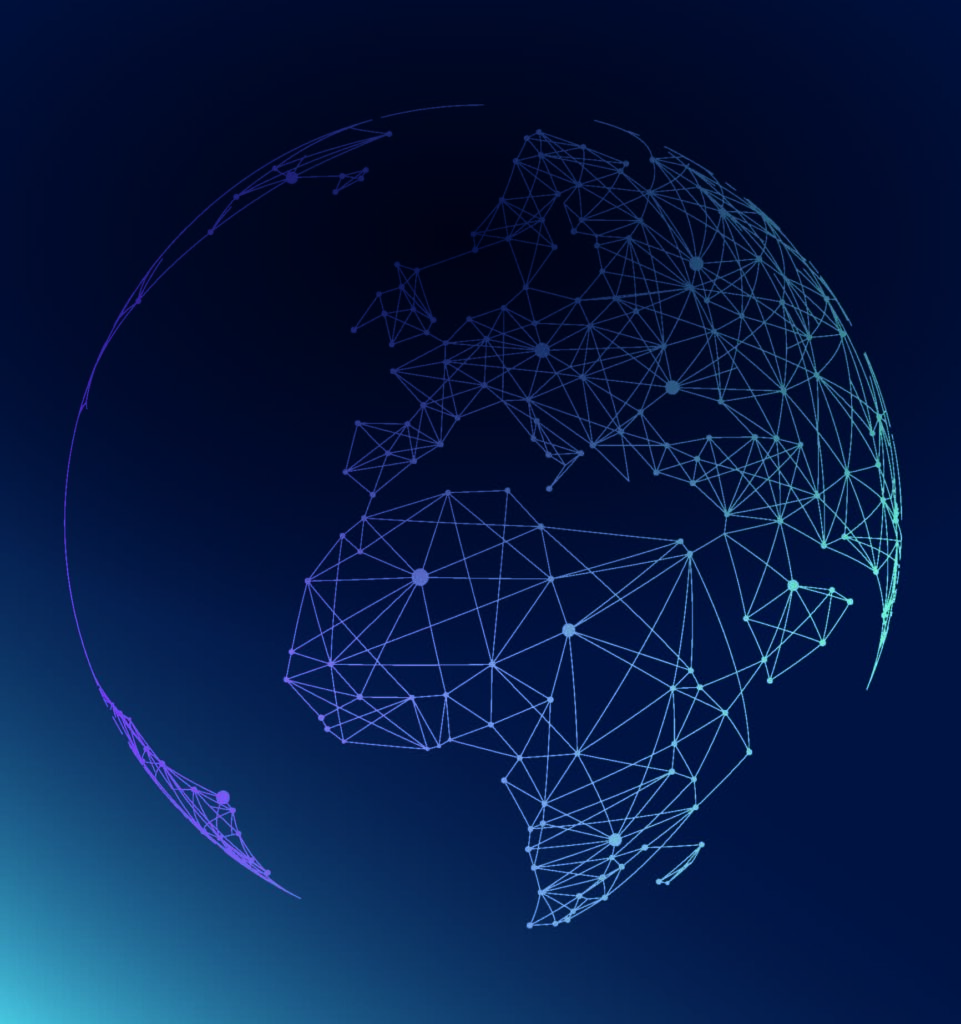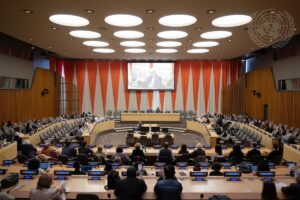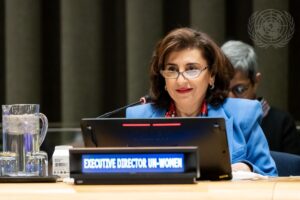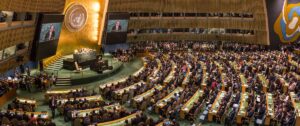Executive Summary
“Rarely are opportunities presented to you in a perfect way. In a nice little box with a yellow bow on top. ‘Here, open it, it’s perfect. You’ll love it.’ Opportunities–the good ones–are messy, confusing and hard to recognize. They’re risky. They challenge you.”
—Susan Wojcicki, Chief Executive Officer of YouTube.1Wojcicki, Johns Hopkins University Commencement Speech, 2014.
Under the banner of “Diplomacy, Dialogue, and Diversity,” the Doha Forum has promoted for more than two decades a spirited and open interchange of ideas to innovate and improve international policy-making that drives action-oriented networks. Through this Future of International Cooperation Report 2023(FIC’23), the Doha Forum, Stimson Center, and Global Institute for Strategic Research seek to better inform forum participants and concerned citizens worldwide, by addressing vital dimensions of global and regional cooperation alongside concrete recommendations for strengthening collective action in meeting major challenges, threats, and opportunities of the present era. Effective and legitimate action requires the participation of governments, civil society, religious leaders, the media, the business community, and international organizations, both global and regional.
Two major areas much in need of effective collective action are cyber-technology, including artificial intelligence (AI), and peacebuilding. AI and other cyber-tech present powerful tools for global and regional problem-solving, but they pose equally serious challenges, including the potential for unfettered competitive action that may lead to a “tragedy of the commons” for all. With more violent conflicts underway now than at any time since the Second World War, the need to build just and sustainable peace has never been more urgent, but present peacebuilding tools seem less effective than ever.
With a special focus on “Building Shared Futures,” this report demonstrates how carefully designed and responsible initiatives in these two critical areas can contribute to positive outcomes at the intergovernmental and multistakeholder Sustainable Development Goals (SDG) Summit this September and the Summit of the Future (SOTF) in September 2024. In part to strengthen the linkages between the SDG Summit and the SOTF, three fundamental principles must anchor the responsible scaling-up and basic functioning of AI and other cyber technologies, namely: safety, sustainability, and inclusion. For effective peacebuilding to perform a similar role, upholding the five principles of addressing the root causes of violent conflict, local capacity development, just and meaningful inclusion, accountability and transparency, and solidarity and social justice are essential too.
“…[We] seek to better inform…concerned citizens worldwide, by addressing key dimensions of global and regional cooperation…”
With an eye toward making artificial intelligence, cyber-governance, and peacebuilding accessible and beneficial to present and future generations in all countries by reflecting these core principles, among the report’s chief recommendations are:
AI & Cyber-Governance Innovations for Global and Regional Problem-Solving
Establish an International Artificial Intelligence Agency:
The agency would serve to: i) improve visibility, advocacy, and resource mobilization for global AI regulatory efforts; ii) provide thought leadership on General Assembly and Security Council AI and cyber technology-related initiatives and agreements; iii) monitor, evaluate, and report on AI industry safeguards in compliance with an agreed international regulatory framework; iv) enhance coordination across Member States and regional bodies to leverage AI’s positive development applications; and v) coordinate transnationally across initiatives and frameworks on AI governance to support knowledge-sharing of best practices and lessons learnt. The Agency should be supported by an expert Intergovernmental Cyber and AI Panel, modeled on the Intergovernmental Panel on Climate Change.
Require Digital Advocates as Integral to a New Treaty on Lethal Autonomous Weapon Systems:
Today’s soldiers are educated on the rules of war, inculcating international humanitarian law (IHL) to minimize the human cost of armed conflict. This report calls for digital advocates as a mandatory component of the software governing autonomous weapons. When humans relinquish decision-making power to machines, they have an obligation to equip them with IHL principles to reduce unnecessary suffering, especially if a weapons system is programmed to continue a mission after it loses contact with its controllers. States may be unwilling to part with the source code of their weapons, but sharing information on digital advocates could provide an avenue for greater transparency, trust, and norm proliferation.
Harness the Global Digital Compact as an integrated SDG (iSDG) on Technology:
Coordination across existing SDG targets concerning technology and filling in gaps where targets were not identified in 2015, such as the positive use of AI, will position the Global Digital Compact as an accelerator of the wider 2030 Agenda for Sustainable Development. Leveraging the Compact in this way underscores the social contract that guides international cooperation and collective responsibility in bridging the digital divide, sharing risks and benefits to encourage greater investment in digital access, and enhancing technology’s value as a global public good.
Peacebuilding Innovations for Global and Regional Problem-Solving
Advance the Next Generation Women & Youth Peace & Security (WPS and YPS) Agendas:
Cultural stereotypes and barriers to participation in policy development, decision-making, and implementation for women and youth can be addressed through awareness campaigns, internal UN system-level accountability frameworks, and education, as well as logistical and financial support, that together equip women and youth as peacebuilders. Additionally, the UN system, alongside regional bodies such as SAARC, ASEAN, the GCC, and the AU, should work with national counterparts on robust WPS and YPS National Action Plan monitoring and evaluation mechanisms to track, for instance, gender-based violence and gender equality in areas affected by conflict.
Transform the Peacebuilding Commission into an Empowered Council for Sustaining Peace:
With an expanded mandate, the Peacebuilding Council would have enhanced powers and responsibilities to lead on conflict prevention (including through a new Peacebuilding Audit tool) and peacebuilding policy development, coordination, and resource mobilization on critical second- and third-order conflicts, freeing up the Security Council to concentrate on first-order conflicts that most threaten international peace and security. In addition, a reinvigorated focus on prevention calls for adequate, predictable, and sustained funding of the Peacebuilding Fund, including from assessed dues, thereby strengthening the world body’s core mission of sustaining peace.
“…artificial intelligence…and peacebuilding wield immense potential for revolutionizing how diverse state and non-state actors can…grapple with some of the most complex issues at the heart of the SDG Summit and SOTF Action Agendas.”
Offer Greater Details (and Ambition) to Collective Security Architecture Reform Proposals:
As a contribution to next year’s Summit of the Future, UN Secretary-General António Guterres’ New Agenda for Peace speaks briefly to ideas for improving the Security Council, General Assembly, and Peacebuilding Commission—but given present gaps in international governance, there is room for going further. For example, the number of non-permanent seats on the Council should be expanded by six, while allowing for the immediate re-election of non-permanent members, through an appropriate amendment of UN Charter Article 23. The Secretary-General should also lend his support to more frequent use of the Uniting for Peace resolution when the UNSC fails to act in critical matters of international peace and security.
The Future is Now: Advancing the SDG Summit and Summit of the Future Action Agendas
Next year’s Summit of the Future is designed to realize—through well-conceived, politically acceptable, and adequately resourced reform proposals—the international systemic changes needed to fill the global governance systems gaps identified in the Political Declaration of the SDG Summit. The SOTF’s “Pact for the Future” and associated instruments (including a Global Digital Compact, New Agenda for Peace, and Declaration on Future Generations) are poised to take forward the 2030 Agenda for Sustainable Development, 2015 Paris Climate Agreement, and wider UN agenda, including in the areas of economic governance and debt relief, science and technology, peace and security, human rights, and the special needs of younger and future generations.
As elaborated in the FIC’23 report, artificial intelligence, cyber-governance, and reinvigorated peacebuilding wield immense potential for revolutionizing how diverse state and non-state actors can jointly and creatively grapple with some of the most complex issues at the heart of the SDG Summit and SOTF Action Agendas. With courage and imagination that fully employs these tools, our leaders can yet pull humanity back from the brink of overlapping crises and emerging shocks—including potential mass displacement from sea-level rise, recurring health crises, and the outbreak of deadly armed conflicts—toward a path of solidarity, peace, and shared prosperity. We have no time to lose in revitalizing global and regional problem-solving through principled and future-focused international cooperation.
Notes
- 1Wojcicki, Johns Hopkins University Commencement Speech, 2014.




